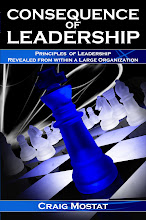I have observed them on many occasions throughout the community picking up garbage and finally had a chance to talk to them. I caught up with the incredibly friendly couple at the end of their evening walk just as it was getting dark. More than happy to share the details of their efforts with me, I find out that they have been carrying out their twice a day "community cleanup walks" for five years.
Sebastian informs me that they each filled two bags this morning. "When we first started doing this, five years ago, we picked up ten bags full just from the path over there," he adds.
Explaining further, "We have noticed that the amount of garbage thrown down has been reduced dramatically since we started – I think that people see what we are doing and are more reluctant to litter."
"We don't do this for money or recognition or anything like that – we just like a clean community – but people often come by and give us these gift cards," affirming with humility as he pulls out a Tim Horton's coffee card (a big deal and valuable gift for any Canadian).
His experience with reduced litter is explained by, and support for, the "Broken Window Theory" outlined in the book "Fixing Broken Windows: Restoring Order and Reducing Crime in Our Communities" by George L. Kelling and Catherine Coles. The authors suggest that a successful strategy for preventing vandalism is to fix the problems when they are small. Repair the broken windows within a short time, say, a day or a week, and the tendency is that vandals are much less likely to break more windows or do further damage. Clean up the sidewalk every day, and the tendency is for litter not to accumulate (or for the rate of littering to be much less). Problems do not escalate and thus respectable residents do not flee a neighbourhood. The theory's most well known support is that of the cleanup of New York City in the late 80's and early 90's. (Source: Wikipedia)
Sebastian and Gisela are the kind of people who have stories and life experiences that you could sit and listen to for hours. Both retired and widowed due to cancer (Gisela widowed twice) they have been in Canada for over 30 years. Gisela is originally from East Germany and escaped in the late 50's – well before the wall came down (or had even been erected in the first place).
"They had to build the wall – communism was so bad that there would have been no one left," she explains.
Sebastian, also originated from Germany (West), says, "The next time I see you I will tell you about how we came to Canada. I landed in Montreal and came to Edmonton – by foot!" I checked: a distance of (2790km, 1,846 miles). "It took me over 3 months!"
The conversation moves back to their efforts in keeping the community clean. It is clear that they thrive on giving back in whatever way they can.
Sebastian provides some detail of how blessed they are and uses that to give back – to bless others. "My mother always told me 'you give with warm hands', meaning you can't do anything from the coffin," he says to support his conviction.
"Bottles which are returnable for a refund are saved and given to the kids when they come around to raise money for their sports teams or other activities," Gisela informs.
I notice that they have "dog treats" and offer to any dog that comes by while walking their owner. "All the dogs love us," Gisela says as she stoops down to give the latest lucky puppy a dog-treat.
They are not just walking and cleaning up close to home either. Their radius extends by over five kms (3 miles) from their home. They are singlehandedly cleaning up close to 25% of the city.
An inspiring couple, keeping the community clean and giving back in any way they can, for no other reason than personal satisfaction. They are unintentionally influencing a community in a very positive way.
Now that is leadership.




No comments:
Post a Comment